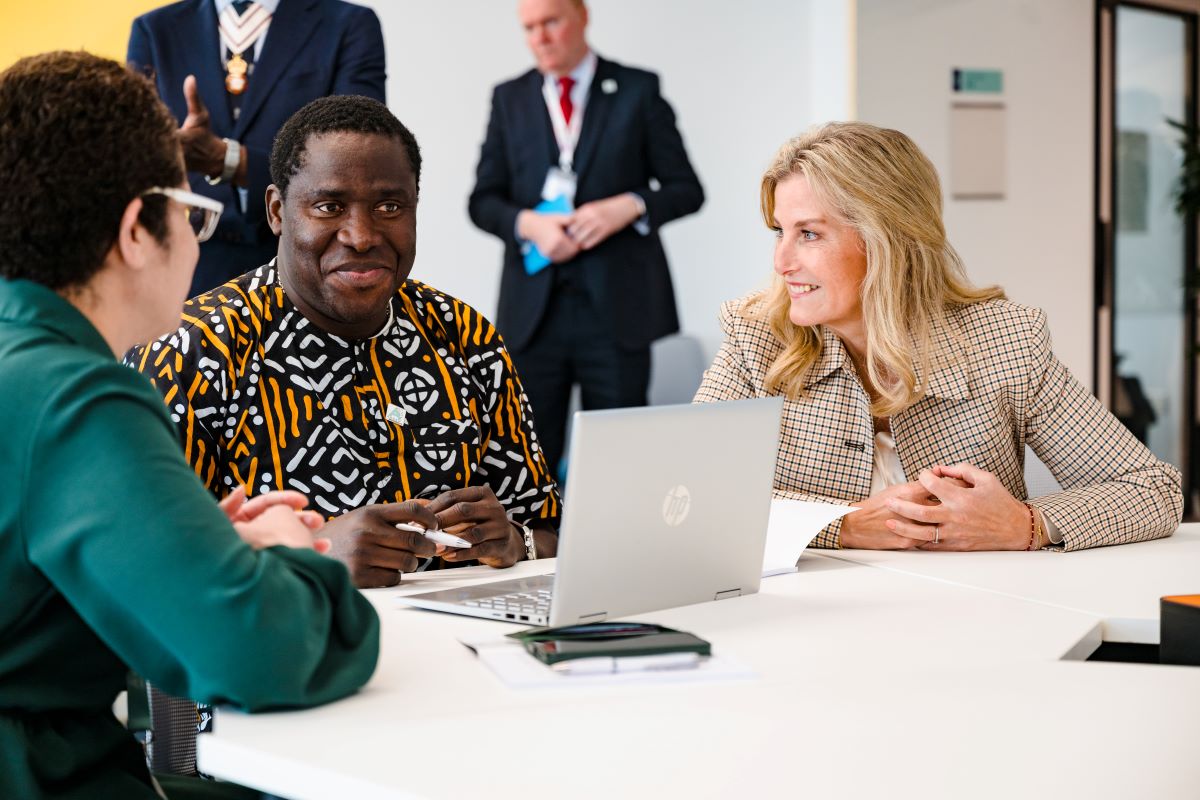Unlocking the Parent Talent Pool: A Guide to Workplace Re-entry

Jane examines the challenges economically inactive women face returning to work, drawing from her career in employability services. She discusses barriers like childcare costs and confidence issues while exploring government initiatives and how parenting skills can translate to workplace abilities.
Juggling Multiple Hats
I wear a lot of hats at home and at work.
My favourite hat is my mum hat which sees me doing the drop-offs to scouts and cadets and
helping with homework, amongst all the wonderful, but demanding aspects of motherhood.
And then there is my career hat – or my crown as I would prefer to call it. With 30 years in
the employability sector as a teacher, career advisor and coach, I have dedicated my career
to empowering women through raising community funding, free events and tailored
training and support.
But it hasn’t all been plain sailing. After having my first child, I lost my crown. I desperately
wanted to wear it, but there were so many barriers standing in my way. My confidence was
at a low, the cost of childcare was through the roof and the roles I wanted to apply for did
not offer any flexibility. I came close to giving up and putting my career dreams aside to
raise my family full-time.
The Hidden Workforce
It shouldn’t just be assumed that women will bounce back to work after having a child. Just
because someone might be drinking green tea, going to yoga and had a senior job before,
does not mean they are now work-ready. Like a postpartum Jane, they may feel lost and
not know where to turn. There are currently 808,000 economically inactive women in
London alone – which is 25.7% of women aged 16-64. Over a quarter of these women
are not in work or looking for work, as they say they need to look after their families or
home
And here’s the other hurdle – many of these women don’t even know what support or
learning opportunities are out there for them. They’re left in the dark, thinking their careers
are potentially over. In addition to mums, economically inactive may also include students,
early retirees, those caring for family members and people dealing with long-term illness.
They’re part of the working-age population, but they’re not counted as part of the labour
force because they’re not available for work.
Government Response and Initiatives
It is a subject which has caused concern for the Government in recent years. On Tuesday 26th
November Work and Pensions Secretary Liz Kendall published the Get Britain Working
White Paper, marking the Government’s first major intervention to achieve an ambitious 80
per cent employment rate. Just two months prior, the Department of Work and Pensions
addressed the spiralling problem of economic inactivity due to poor physical and mental
health and labelled it ‘the greatest unemployment challenge for a generation.’ And in
December 2022, the House of Lords Economic Affairs Committee published the outcome of
its inquiry on the size of the UK labour market. The committee said that economic inactivity
had increased during the pandemic and that early retirement among 50 to 64-year-olds was
a key driver of the increase.
In September 2024, the Women’s Forum was launched, uniting four incredible organisations
dedicated to helping women and mums find employment. Together, we’re on a mission to
push for policy and funding changes that recognise the unique specialist support women returners need to overcome common barriers and find suitable work. It is great to see the Government’s plan to get more people back into work by helping them find exciting and rewarding careers. But unless more focus is given to economically inactive women, I imagine the Government may continue to struggle to engage with this hidden group.
Creating Pathways Back to Work
They aren’t registered as job seekers and there’s a common assumption that if you’re not
signing on at the job centre, then you’re not work-ready. But my experience has proven that
this just isn’t true. Thousands of economically inactive women I’ve helped face many of the
same barriers as those who come through more traditional job referral routes. Just because
they aren’t registered with the job centre doesn’t mean they’re not desperate for support
or ready to get back to work. So, if they aren’t at the job centre, where do you find these
women and how do you engage with them?
Building Success Through Understanding
In 2014 I founded Successful Mums Career Academy with a goal of helping 100 mums back
to work. I saw a real need for support in this area, particularly for women like me, who felt
disconnected from their careers and didn’t know where to start. Fast-forward 10 years and
my team and I have helped over 10,000 rebuild their confidence and find employment.
Engaging with economically inactive women hasn’t been without its challenges, but thanks
to platforms like Instagram, Facebook and our online communities, we’ve been able to build
strong connections. Our success comes from knowing our audience inside out. We speak to
them in a language that resonates, addressing their specific barriers such as confidence,
care advice and childcare and offering real, practical solutions.
Overcoming Barriers Through Community
We understand the challenges they face, such as finding flexible work with school-friendly
hours and we make sure to be the helping hand they need. We celebrate the success stories
of women who’ve completed our accredited courses and gone on to land their dream roles.
These stories inspire others, giving them the confidence to take the first step. That first step
is often the hardest, but once mums are through the door, we make sure they’re equipped
with everything they need to succeed.
Recognising and Transferring Parenting Skills
Understanding your audience and the barriers they face is crucial when looking to engage
with the economically inactive and helping to create the next employee and entrepreneurs
of tomorrow. For mums, it’s about providing solutions to the barriers they face and helping
them to realise the many transferable skills they’ve developed while raising their
children—valuable skills they can take with them into the workplace. Parenting teaches you
a lot, but mums don’t always realise just how much they’ve learned. I often tell them not to
underestimate themselves. Skills like negotiation, organisation, event management
(birthday parties, anyone?), budgeting, networking, and creative problem-solving are
second nature to mums. And let’s not forget conflict resolution—an absolute must when
kids are involved! These skills are invaluable in the workplace, and we help mums make sure
they reflect that on their CVs.
Creating New Opportunities
It’s also about introducing them to career opportunities they might never have considered
or thought were out of reach. This is sideways social mobility – opening doors to careers
they didn’t even know existed and showing them the way. The past 10 years have given me
new insight and perspective which has shown with the right support, anything is possible.
It’s about changing lives, creating social value and inspiring the next generation. Becoming a
mum shouldn’t limit your career—it should enhance it. And who ever said you can only ever
wear one hat anyway.
By Jane Knight, Founder, Successful Mums Career Academy











Responses